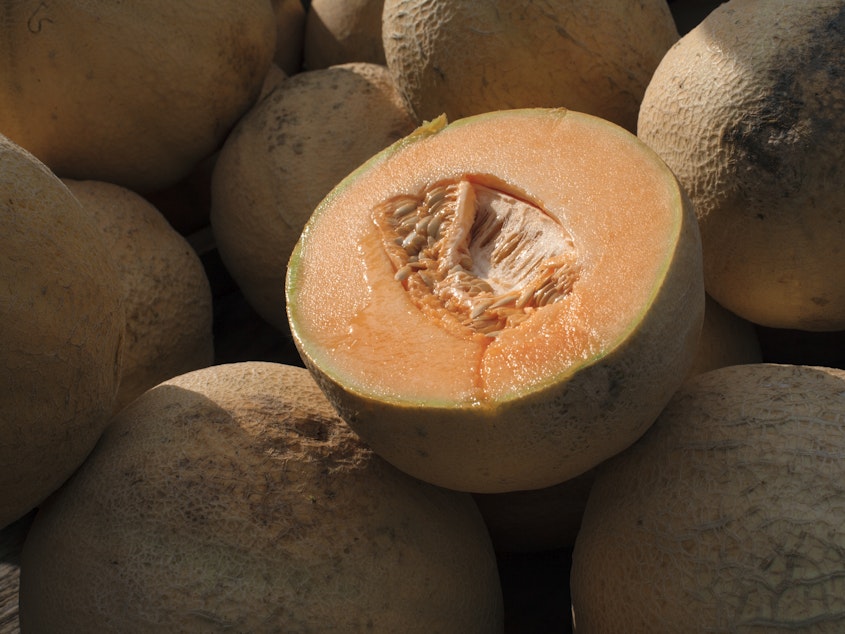FDA warns against eating recalled cantaloupe over salmonella risk

U.S. food safety officials are urging consumers not to eat recalled cantaloupe products due to the risk of illness, as they investigate an outbreak of salmonella infections.
At least 43 people in 15 states have gotten sick from the bacteria, the Food and Drug Administration said Friday. At least 17 of them have been hospitalized. The most recent sickness onset was reported on Nov. 6.
Three brands — Malchita, Aldi and Vinyard — have recalled a handful of fresh cantaloupe and pineapple products sold in at least 13 states nationwide, as well as in Canada.
Of the 29 people who became ill, 15 had reported their exposure to cantaloupe, according to the FDA.
The recalls, issued in the days leading up to the FDA announcement of its investigation, apply to:
Sponsored
Whole fresh cantaloupes with a label that reads "Malichita," and "Product of Mexico/produit du Mexique," sold between Oct. 16-23.
Aldi cantaloupe, cut cantaloupe and pineapple spears sold in clamshell packaging, with best-by dates between Oct. 27-31.
Vinyard cantaloupe chunks and cubes, fruit mixes, melon medleys, and fruit cups containing cantaloupe. Most have a "Vinyard" label; some have a red "Fresh" label; sold between Oct. 30-Nov. 10 in Oklahoma stores.
The recalled fruit was sold at stores in Arizona, California, Maryland, New Jersey, Tennessee, Illinois, Indiana, Kentucky, Michigan, Oklahoma, Wisconsin, Texas, Florida and Canada, but may have reached consumers in other locations through further retail distribution.
People infected with salmonella usually experience diarrhea, fever and abdominal cramps, with symptoms beginning between 6 hours and 6 days after consuming the bacteria. Most people recover 4 to 7 days later. Children under 5 and seniors are at a higher risk of severe, sometimes fatal, illness. [Copyright 2023 NPR]

